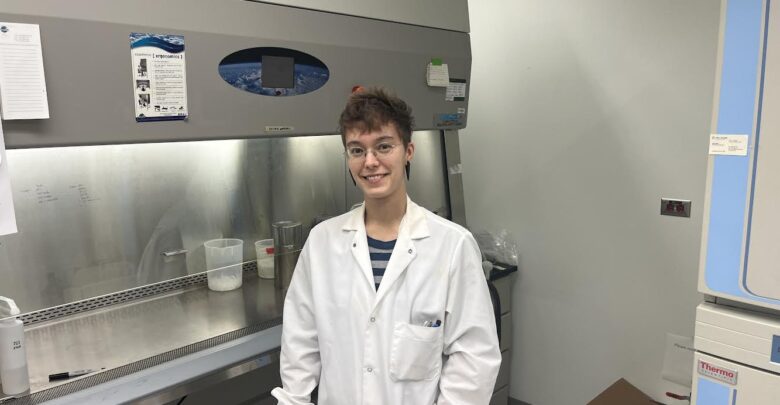 Supplied
Supplied More than 2 million Canadians are affected by auto-immune disease, which is when the immune system attacks healthy organs, cells, and tissues it thinks are foreign to the body. University of Alberta researchers are studying T-cells to enforce self-tolerance and avoid auto-immunity.
The T-cell is a white blood cell in the immune system that recognizes foreign threats to the body, like disease-causing bacteria. T-cells destroy such threats and play a critical role in clearing infectious diseases and eliminating cancer. However, they also play a role in triggering auto-immune disease.
Troy Baldwin is a U of A professor in the department of medical microbiology and immunology. In his research project, he aims to look at T-cell regulation in its early developmental stages to better understand auto-immunity.
Baldwin is collaborating with U of A professor Colin Anderson from the department of surgery. Julia May, a PhD student in the department of medical microbiology and immunology, is leading the project.
The project is one of 13 U of A projects funded by the Canadian Institutes of Health Research (CIHR) grant. It is receiving $100,000 over the period of one year.
Researchers intend to build a fundamental understanding of T-cell regulation
Baldwin’s research focuses on early T-cell development in the thymus, a lymphatic organ which produces and educates the T-cells. In the thymus, T-cells learn to identify whether something is foreign or a part of the immune system. If a substance is recognized to be foreign, the T-cell attacks it.
Baldwin said to “dampen” the defensive response, the T-cell can express programmed cell death-1 (PD-1). PD-1 is an inhibitor which recruits proteins to bind to the T-cell receptor. This can stop the T-cell’s attack on substances which are not foreign to the immune system. If PD-1 is engaged with the T-cell receptor during that interaction, then “the [defensive] response of the cell is diminished,” Baldwin explained.
“The unique aspect of our research is that we’re looking at PD-1’s [role] during these very early events of education in the thymus,” Baldwin says
Baldwin uses genetically-altered pre-clinical models to find where and how PD-1 impacts T-cell education in the thymus. Then, he investigates how those education processes impact the development, function, and auto-immune potential of cells out in the peripheral immune system.
“The unique aspect of our research is that we’re looking at PD-1’s [role] during these very early events of education in the thymus,” Baldwin saId.
There are different mechanisms that enforce tolerance in the immune system. Baldwin is investigating how these mechanisms are integrated. He is also researching how they may compensate for defects in any of the T-cell education processes.
“When we eliminate PD-1 and see auto-immunity, it’s a really focused and reductionist system that actively [ignores] these other tolerance mechanisms that may be in place.”
Baldwin wants to bring the tolerance mechanisms back and see if they can compensate for the lack of PD-1.
Baldwin aims to extend his research to clinical treatment, especially for cancer patients, as immunotherapies can cause auto-immunity. He hopes that understanding PD-1’s capacity to regulate the immune system will provide insight into how cancer immunotherapies trigger auto-immunities.
“We always have an eye for how our research on tolerance, thymic education, and T-cell regulation can [apply to] other areas of health, like cancer immunotherapies and developing even better vaccines,” Baldwin said.
“We’re always learning new things and what we learn can make the therapy better,” Baldwin says
Baldwin expressed that understanding how different proteins work in all contexts is critical. This is because certain biologics — medications composed of animal or other biological products — can block particular signals in people. In order to make effective antibodies with limited side-effects, researchers must understand exactly what the drugs might be doing.
“Just because something is being used clinically doesn’t mean we should stop looking at the fundamental aspects of the biology. We’re always learning new things and what we learn can make the therapy better,” Baldwin said.
“There still is a huge need for fundamental understanding of how all of these components of immune regulation [interact]. Continuing to learn about how the body and the immune system works is really critical. We have to keep supporting that.”




